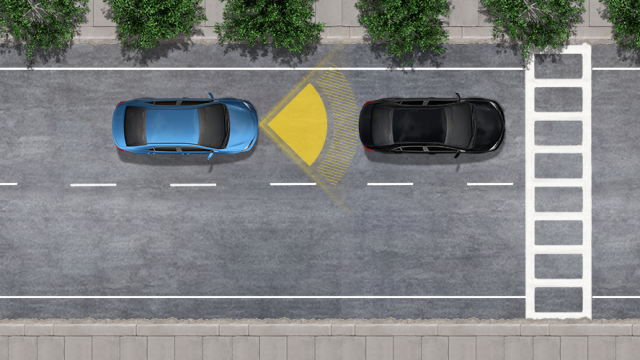In-vehicle driver safety assistance systems are so normalized now that even the most basic vehicles come with some sort of feature, from lane departure warning to lane keep assist. But you might not want to be so quick to entrust your life with some of these features, as they don’t always work as intended or as well as you think they would. Take automatic emergency braking, as Consumer Reports and AAA crash testing shows most of these systems don’t actually work well in a crash when you’re travelling at speed.
While the electronics needed to make automatic emergency braking work are complicated, the way it works is rather simple. Using sensors, vehicles equipped with AEB can usually detect an obstacle at a safe enough distance that there’s time to either avoid the obstacle or come to a complete stop. But Consumer Reports found that most systems won’t work if the vehicle is travelling over 64 km/h. Even worse, “none are designed to prevent ‘T-bone’ crashes at intersections or left turns in the path of oncoming traffic.”
AAA took their testing even further, testing four popular (and unknown) models. All came with automatic braking. Using dummy dolls made of foam, AAA set up different crash scenarios. Their findings were surprising. From Consumer Reports:
• At 48 km/h, the tested AEB systems prevented rear-end collisions with the dummy car in 17 out of 20 test runs. In the 48 km/h test runs that resulted in a collision, AEB reduced impact speed by an average of 86 per cent.
• At 64 km/h, AEB prevented rear-end collisions in only 6 out of 20 test runs and reduced impact speed by an average of 62 per cent.
• In a 48 km/h perpendicular collision at an intersection, otherwise known as a T-bone crash, AEB didn’t prevent or lessen the impact of any crashes.
• AEB also didn’t prevent or lessen the impact of any crashes involving a left turn in front of an oncoming vehicle.
So if it doesn’t seem to work as intended, what’s the point? Jennifer Stockburger, director of Consumer Reports vehicle testing centre, highlighted that auto-braking is still beneficial in that it can slow the vehicle, lessening the impact of the crash which leads to less serious injuries.
But if you’re a smart driver, you shouldn’t need professional testing to tell you the obvious: Don’t rely on your vehicle’s tech to save your life. While the tech we have now is impressive and advanced, none of it can account for the human factor of simply paying attention while driving.
